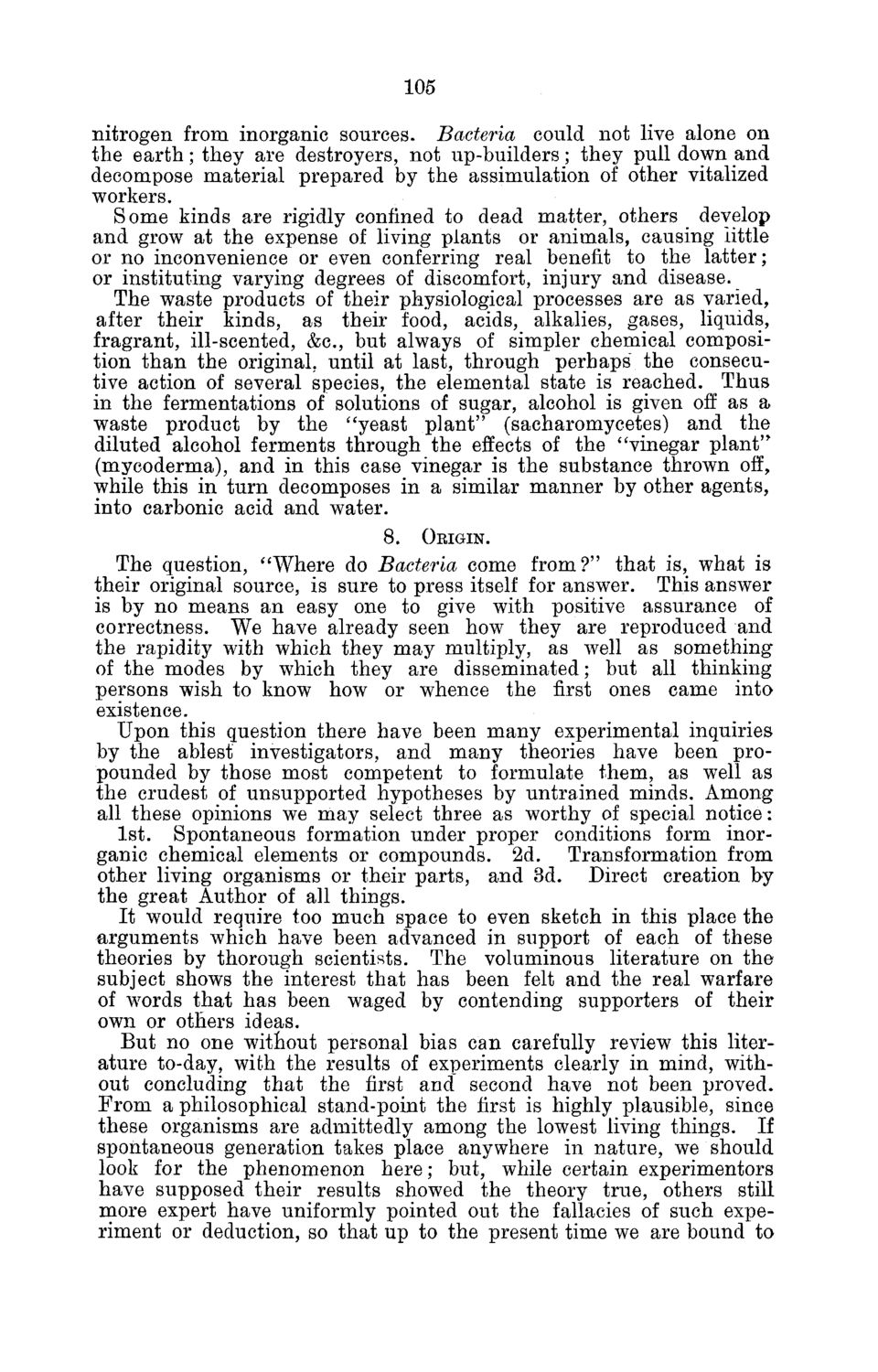| |
| |
Caption: Board of Trustees Minutes - 1882
This is a reduced-resolution page image for fast online browsing.

EXTRACTED TEXT FROM PAGE:
105 nitrogen from inorganic sources. Bacteria could not live alone on the earth; they are destroyers, not up-builders; they pull down and decompose material prepared by the assimulation of other vitalized workers. Some kinds are rigidly confined to dead matter, others develop and grow at the expense of living plants or animals, causing little or no inconvenience or even conferring real benefit to the latter; or instituting varying degrees of discomfort, injury and disease. The waste products of their physiological processes are as varied, after their kinds, as their food, acids, alkalies, gases, liquids, fragrant, ill-scented, &c, but always of simpler chemical composition than the original, until at last, through perhaps the consecutive action of several species, the elemental state is reached. Thus in the fermentations of solutions of sugar, alcohol is given off as a waste product by the "yeast plant" (sacharomycetes) and the diluted alcohol ferments through the effects of the "vinegar plant" (mycoderma), and in this case vinegar is the substance thrown off, while this in turn decomposes in a similar manner by other agents, into carbonic acid and water. 8. ORIGIN. The question, "Where do Bacteria come from?" that is, what is their original source, is sure to press itself for answer. This answer is by no means an easy one to give with positive assurance of correctness. We have already seen how they are reproduced and the rapidity with which they may multiply, as well as something of the modes by which they are disseminated; but all thinking persons wish to know how or whence the first ones came into existence. Upon this question there have been many experimental inquiries by the ablest investigators, and many theories have been propounded by those most competent to formulate them, as well as the crudest of unsupported hypotheses by untrained minds. Among all these opinions we may select three as worthy of special notice: 1st. Spontaneous formation under proper conditions form inorganic chemical elements or compounds. 2d. Transformation from other living organisms or their parts, and 3d. Direct creation by the great Author of all things. It would require too much space to even sketch in this place the arguments which have been advanced in support of each of these theories by thorough scientists. The voluminous literature on the subject shows the interest that has been felt and the real warfare of wrords that has been waged by contending supporters of their own or others ideas. But no one without personal bias can carefully review this literature to-day, with the results of experiments clearly in mind, without concluding that the first and second have not been proved. From a philosophical stand-point the first is highly plausible, since these organisms are admittedly among the lowest living things. If spontaneous generation takes place anywhere in nature, we should look for the phenomenon here; but, while certain experimentors have supposed their results showed the theory true, others still more expert have uniformly pointed out the fallacies of such experiment or deduction, so that up to the present time we are bound to
| |